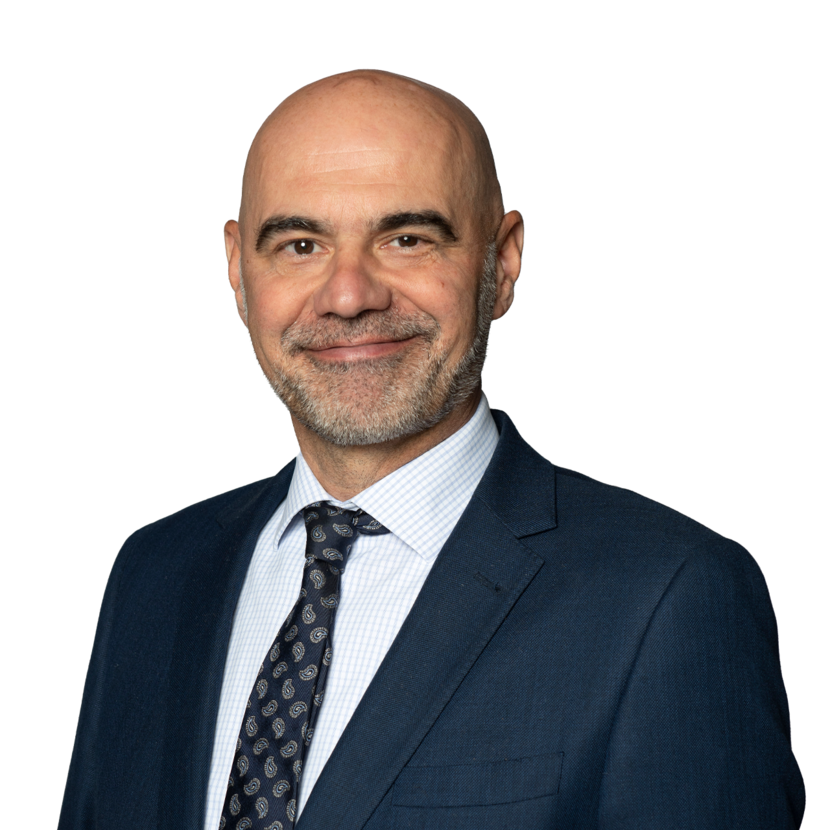The ambassador - Slovenia
The ambassador

Johan Verboom
See the curriculum vitae of ambassador Verboom on rijksoverheid.nl (in Dutch).
How was your introduction to Slovenia? What was the first thing about the country that struck you?
‘That it’s a beautiful country; wooded and mountainous. Slovenia produces little-known but excellent wines, and the landscape looks very alpine: it’s reminiscent of Austria, but with its own distinct, diverse culture. More and more Dutch people are going to Slovenia on holiday. Which makes sense – it’s a regional pearl.
After Sweden and Finland, it’s the most forested country in Europe. Slovenians love the outdoors and they’re very sporty: into cycling, running, mountain biking, skiing and ski jumping – the national sport. I was immediately taken by Ljubljana. It’s more laid back than Milan, where I last lived and worked as Dutch consul-general. Ljubljana is an authentic city with not much high-rise, a fun vibe and – even in the winter – full bar and café terraces.’
What do Dutch people need to know about Slovenia?
‘This country was first part of Yugoslavia, becoming independent for the first time in its history only in 1991. Slovenia was the first of the states formed after the breakup of Yugoslavia to join the European Union and NATO. Back then, its economy was already in good shape. It’s home to quite a lot of high-end manufacturing plants, for example businesses supplying the German car industry.’
You studied civil engineering. How did you end up becoming an ambassador?
‘My degree was in water management. I was idealistic: wanted to get involved in development work and help countries improve their water supply systems. I worked for the United Nations in Niger and Indonesia before joining the Dutch diplomatic service.
Ironically, I went on to work in many different countries, but hardly in the field of development cooperation. Still, my ‘engineer’s hat’ still comes in useful. I recently participated in a meeting on energy policies at the EU energy agency ACER. Discussions of this kind get quite technical, and at times like that my background means I can join in when it comes to matters of substance.’
How was your introduction to Slovenia? What was the first thing about the country that struck you?
‘That it’s a beautiful country; wooded and mountainous. Slovenia produces little-known but excellent wines, and the landscape looks very alpine: it’s reminiscent of Austria, but with its own distinct, diverse culture. More and more Dutch people are going to Slovenia on holiday. Which makes sense – it’s a regional pearl.
After Sweden and Finland, it’s the most forested country in Europe. Slovenians love the outdoors and they’re very sporty: into cycling, running, mountain biking, skiing and ski jumping – the national sport. I was immediately taken by Ljubljana. It’s more laid back than Milan, where I last lived and worked as Dutch consul-general. Ljubljana is an authentic city with not much high-rise, a fun vibe and – even in the winter – full bar and café terraces.’
What do Dutch people need to know about Slovenia?
‘This country was first part of Yugoslavia, becoming independent for the first time in its history only in 1991. Slovenia was the first of the states formed after the breakup of Yugoslavia to join the European Union and NATO. Back then, its economy was already in good shape. It’s home to quite a lot of high-end manufacturing plants, for example businesses supplying the German car industry.’
You studied civil engineering. How did you end up becoming an ambassador?
‘My degree was in water management. I was idealistic: wanted to get involved in development work and help countries improve their water supply systems. I worked for the United Nations in Niger and Indonesia before joining the Dutch diplomatic service.
Ironically, I went on to work in many different countries, but hardly in the field of development cooperation. Still, my ‘engineer’s hat’ still comes in useful. I recently participated in a meeting on energy policies at the EU energy agency ACER. Discussions of this kind get quite technical, and at times like that my background means I can join in when it comes to matters of substance.’


